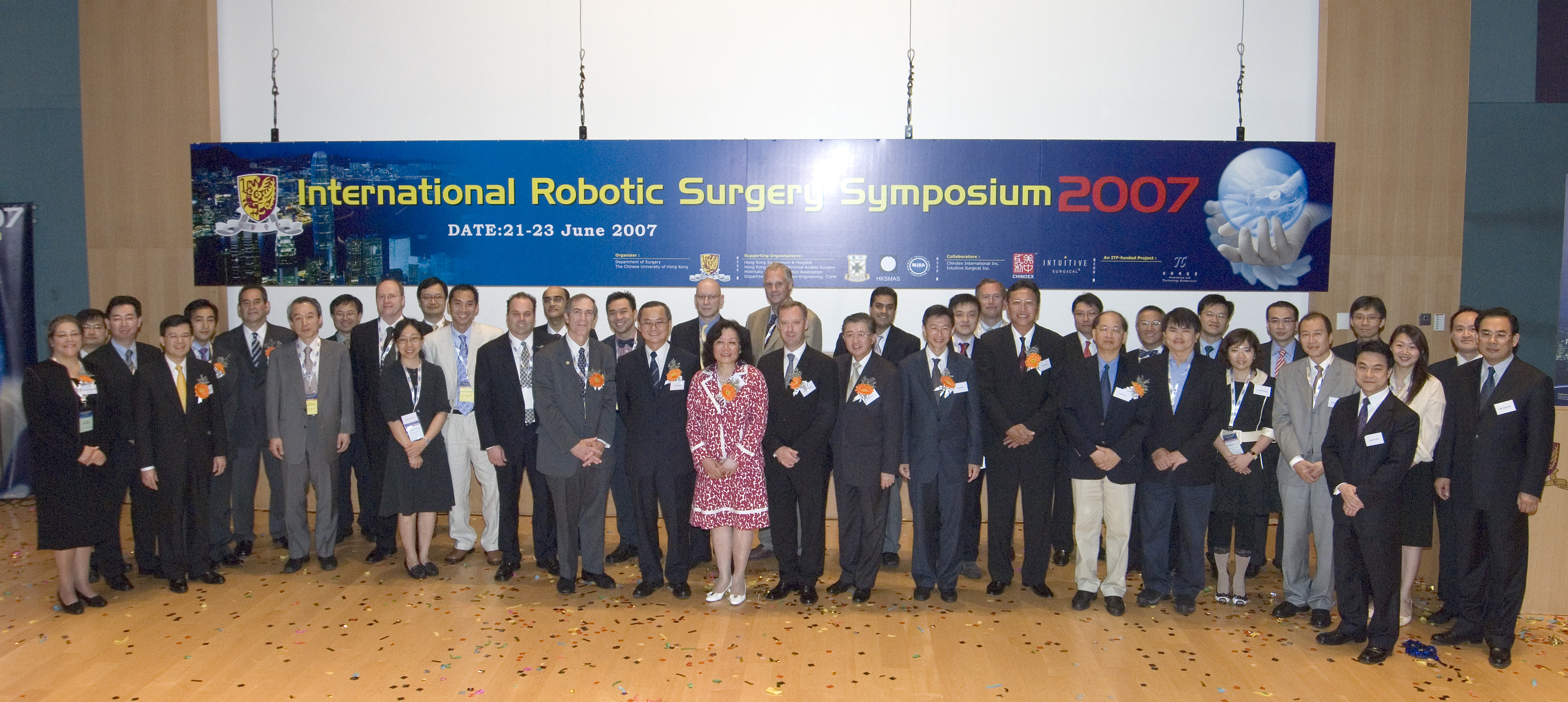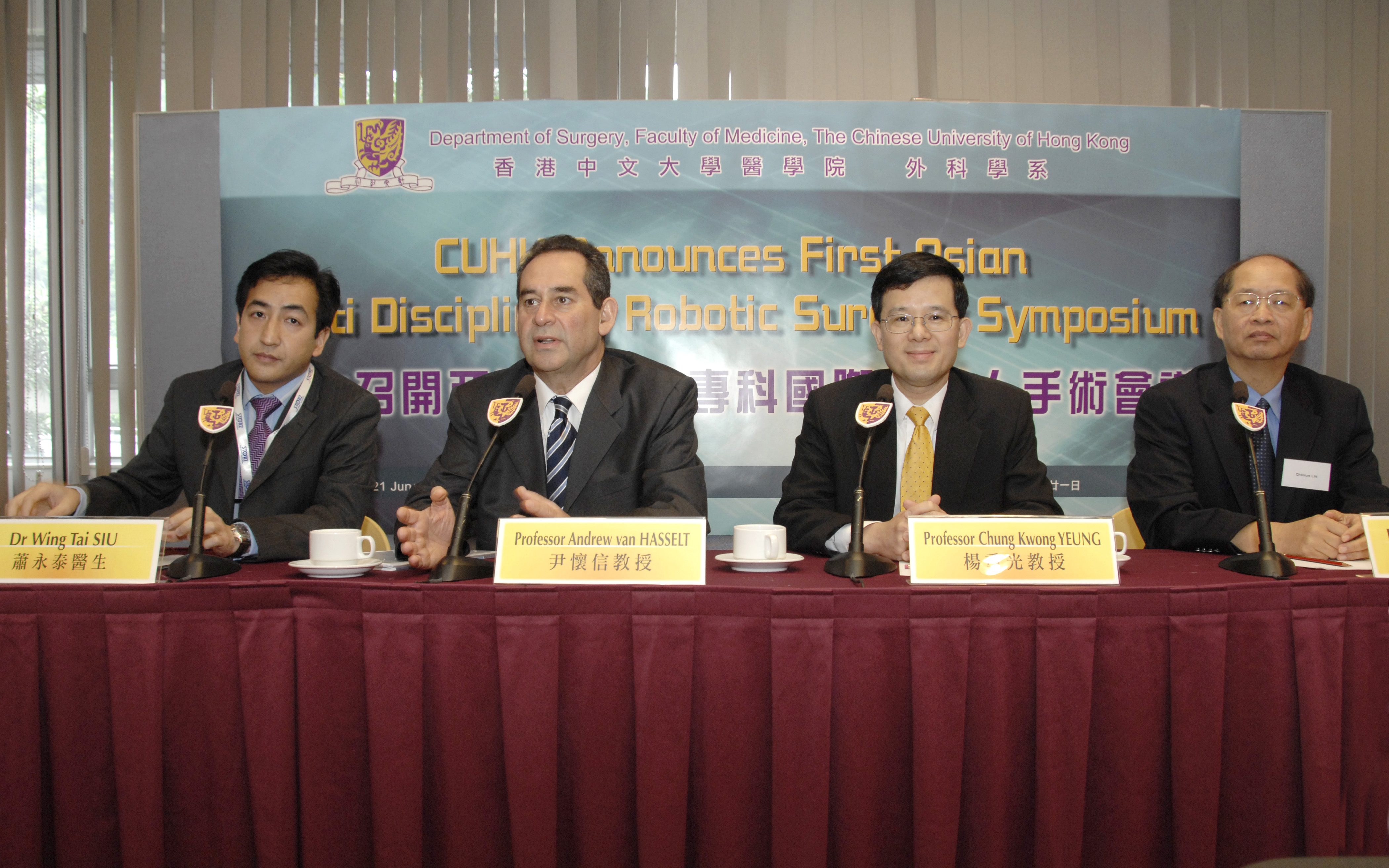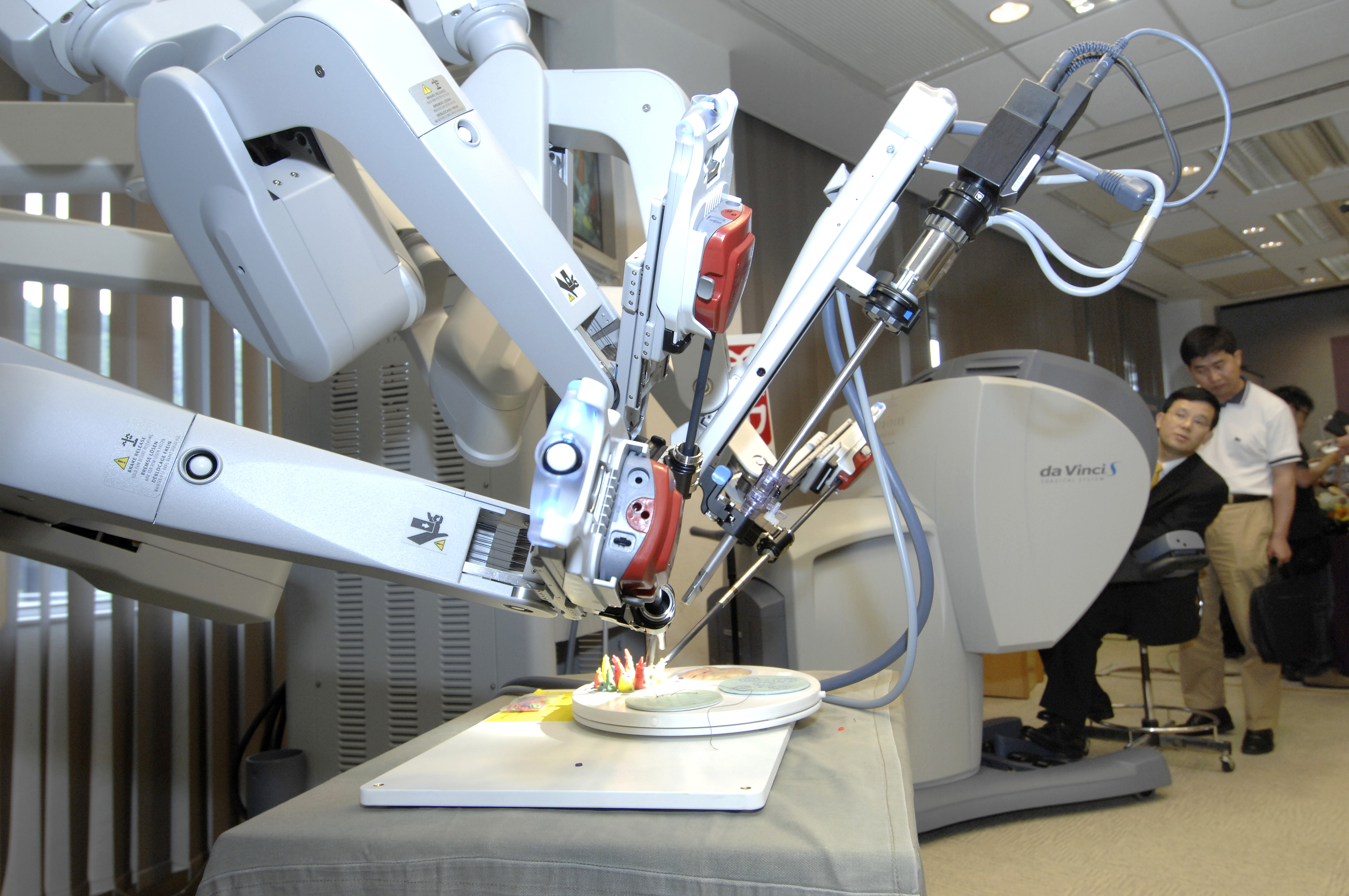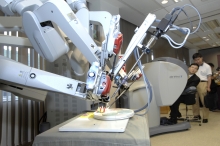News Centre
CUHK Hosts First Asian Multi Disciplinary Robotic Surgery Symposium
The International Robotic Surgery Symposium 2007, organized from 21 to 23 June by the Department of Surgery, The Chinese University of Hong Kong, brings together world experts in robotic surgery and Asian surgeons and other related medical professionals. The Department’s vision is to ensure that Asia benefits quickly from the remarkable new advances in minimally invasive surgical technique made possible by the use of surgical robots. The assistance of such robots is today allowing human surgeons to operate with superior precision, efficiency and safety, using remote control as required.
The multi-disciplinary forum, the first of its kind in Asia, is being held in purpose designed facilities at Hong Kong’s Prince of Wales Hospital, the University’s teaching hospital. It will range over urology, paediatric surgery and paediatric urology, general surgery, cardiothoracic surgery, neurosurgery, otorhinolaryngology, orthopaedics, and gynaecology.
More than 250 delegates, including 45 representatives from prominent major hospitals in Mainland China, where there is a phenomenal interest in robotic surgery, will study current achievements in the field. They will also gain insight into the rapid advances to be expected as surgeons, engineers, information technologists and others continue their creative cooperation. As well as keynote lectures by seasoned world experts and by successful early adopters of robotic surgery in Asia, delegates will observe and comment on three live surgery demonstrations in 3D, including a videocast of a gastrectomy being performed in South Korea.
The energetic leadership and teamwork of the University’s Department of Surgery led to the successful installation there of China’s first surgical robot in November, 2005, coupled with the latest specialized training facilities. Since then, more than 100 robot assisted operations have been performed in the Prince of Wales Hospital, and more than 50 of the University’s medical staff have gained an assured grasp of the new and extended skills required to operate using robots. They have also played an active teaching role in similar international forums overseas.
“Globally, just about everyone accepts that robotically assisted surgery will sooner rather than later become the new standard in surgical technique,” said Professor Andrew van Hasselt, Chairman of the Department of Surgery. “With more and more surgeons in Asia already eager to master these unique surgical skills, the region’s medical community can benefit from its own conveniently based knowledge exchange platform in Hong Kong, and I am of course delighted that our institution has progressed to the point where we can play host to such an event.”
The gap between Asia and the United States and Europe in the robotic surgery field is in fact already narrowing quickly. For example, in prostate cancer—the second most common cancer in men—removal of the prostate gland is often the preferred course of action. Many Asian surgeons have become expert in performing this operation using a minimally invasive robotically assisted technique, and their experience has helped to confirm the robotic approach as the procedure of choice in such cases.
“The symposium’s scientific committee has created remarkable opportunities for East-West interchange,” commented Professor T F Fok, Dean of the Faculty of Medicine at the Chinese University of Hong Kong. “Local and Asian delegates are sure to learn greatly from their international colleagues. I am confident too that the world renowned experts visiting us from further afield will be in their turn excited to find Asian delegates so eager and ready to bring the benefits of robotic surgery to their patients.”
The International Robotic Surgery Symposium 2007 is funded by the Innovation and Technology Fund of the HKSAR Government and supported by the Hong Kong Society of Minimal Access Surgery, the Hong Kong Sanatorium & Hospital, the Minimally Invasive Robotics Association, the Department of Information Engineering of The Chinese University of Hong Kong, Chindex International, Inc., and Intuitive Surgical.
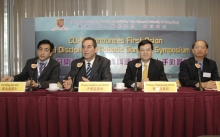
From left: Prof Wing Tai Siu, Honorary Clinical Associate Professor, Department of Surgery, CUHK Prof Andrew van Hasselt, Chairman, Department of Surgery, CUHK Prof Chung Kwong Yeung, Professor of Surgery, Department of Surgery, CUHK Prof Chinlon Lin, Professor of Photonics, Department of Information Engineering, CUHK
